A webinar under the auspices of the Karachi Council on Foreign Relations (KCFR) was held on 24th February, 2022 on “Canada-Pakistan Relations” with Her Excellency Ms. Wendy Gilmour, High Commissioner of Canada to Pakistan. Chaired by Mr. Ikram Sehgal, Chairman KCFR, the event was moderated by Mr. Kalim Farooqui Treasurer, KCFR.
The transcript of the webinar is as follows:
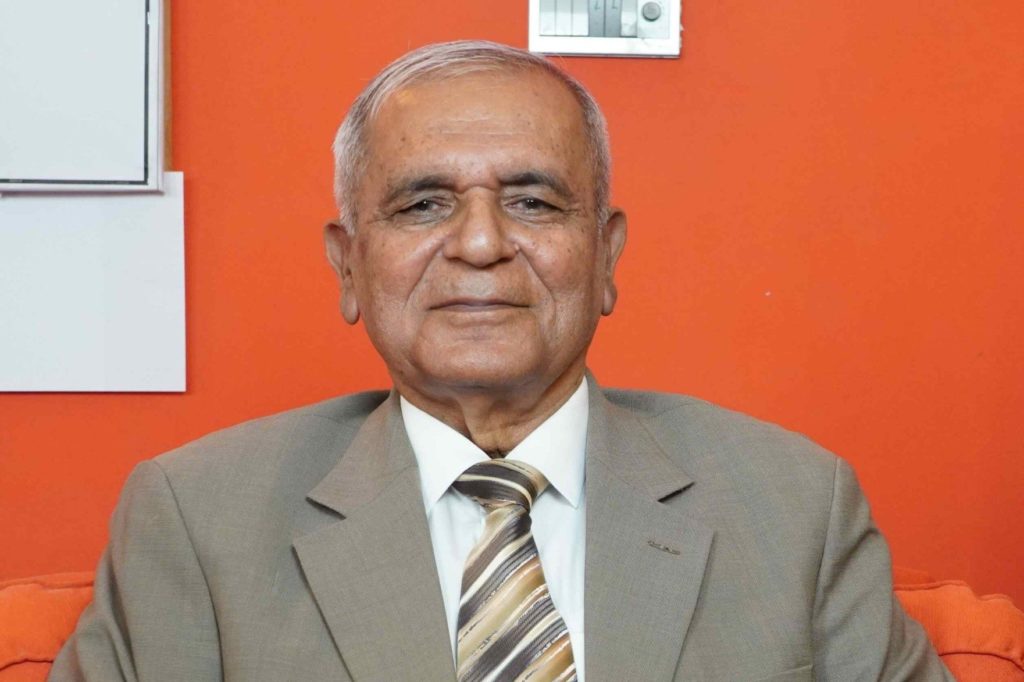
Commodore (R) Sadeed Malik: Bismillah-ir-Rahman-ir-Rahim. Your Excellency, distinguished participants, Chairman and members of the Board of Governors, and members of Karachi Council on Foreign Relations, I am Commodore (R) Sadeed Anwar Malik. I’m the Chief Executive Officer and Secretary General of KCFR. As everybody is well introduced to KCFR, I may skip the introduction. Today’s moderator will be Mr. Kalim Farooqui, who is a senior member of Karachi Council on Foreign Relations and a businessman from Karachi. He heads the Pakistan-Japan Business Council, and the Chamber of Commerce of Karachi, Lahore, Sialkot and some American, Belgium and Luxembourg Chambers of Commerce. He is basically an engineer and member of the Karachi Council on Engineering also and is a leading businessman of Karachi. May I request Mr. Kalim Farooqui to moderate today’s webinar.
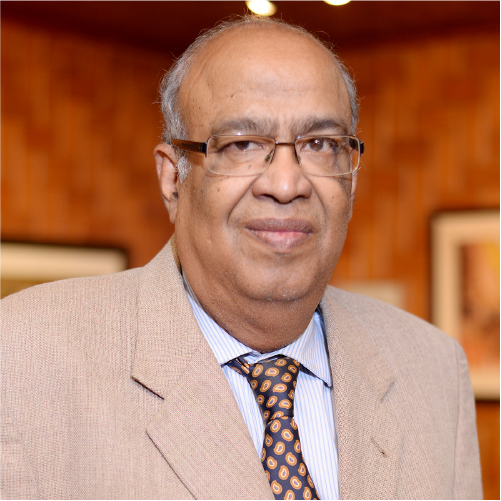
Mr. Kalim Farooqui: Thank you Malik sahib, thank you very much! Assalam-o-alaikum and a very good morning Excellency, nice to see you. We were a little scared whether you’ll be able to meet us because of from where our prime minister has just arrived last night. But considering the fact that some may be glued to the TV to see what is happening, there are 34-35 participants today. Thank you very much madam! Let me introduce the background of Her Excellency Wendy Gilmour.
Wendy Gilmour joined the Canadian Foreign Service in 1990 with posting in Zimbabwe and with concurrent accreditation at that time to Mozambique, Botswana and Angola, also United Kingdom and Nigeria. She served in international peace operations in Bosnia-Herzegovina Office of the High Representative, and Kosovo as Political Advisor to the commander NATO cover forces in 1990s. And with the Canadian armed forces as a Political Advisor to the Canadian Commander Joint Task Force Southwest Asia. That means she is very well acquainted with Pakistan. In the headquarters, the High Commissioner served as Deputy Director in the Eastern Europe in regional security and peacekeeping divisions, and as a Director Peace Operations, and Director of the Sudan Task Force. She was also posted to Colorado Springs as the Political Advisor to Commander North American Aerospace Defense Command in 2008, and stayed there till 2010. On return to Ottawa she joined the Department of Public Safety as Senior Departmental Assistant to the Minister. Her Excellency moved to National Defense in 2011 to become the Director General International and Industry programs in the Material Group, after which she rejoined the Department of Foreign Affairs, Trade and Development in 2015, became Director General Trade and Export controls. Her Excellency holds a Bachelor of Arts (Hons) in Political Studies and History from Queen’s University at Kingston, and served in the Canadian Forces Primary Reserve as a Logistics Officer. A very vast background madam, it will be a pleasure listening to you. As you can see the Karachi Council on Foreign Relations basically comprises of a group of individuals from different variety of sectors, so may I request you madam, to say what you have to, and then we’ll have a question and answer session later. Thank you.
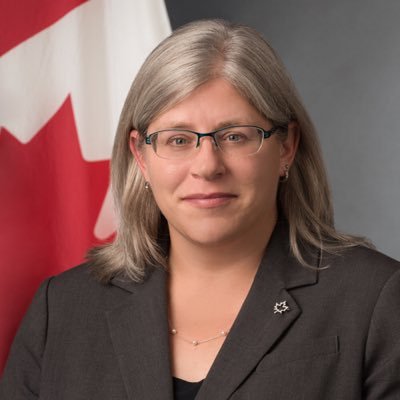
H.E. Wendy Gilmour: Wonderful! Thank you so very much for the invitation to be with you this morning, and in particular, the Karachi Council on Foreign Relations. It’s a very important group, you have many esteemed members in your ranks. As I say looking through the video, I see Generals and Ambassadors as well as I see Samir Desai online. The Canada-Pakistan Business Council, which is a very important forum for us. I’m just so pleased to be with you here this morning. Two years into the pandemic and we’re still on video calls, but it does mean that I can reach out in a very timely way to all of you down south in the country. It also means that with great pleasure, I can see many of your faces, which is not always the case when we’re together and hidden under masks. So truly a pleasure to be here with you this morning. It was interesting sort of listening to the bit of the recitation of my career. I was thinking this morning and speaking to some of my colleagues in Canadian missions around the world, that I started my career just as the Cold War was ending, and we were thinking that we were heading into a period. It was the end of history, we were going to have a positive productive relationship amongst all of the major powers of the world, in order to address the most pressing and challenging problems of our time. And through the 90s, through the 2000s, the 2010s, we’ve learned that this is not the end of history, that there are still many pressing challenges, but that they are best addressed when we’re able to speak to one another and work together without armed conflict hovering sort of over our heads, Pakistan knows that better than anyone. I do understand, I am often reminded that Pakistan is one of the countries that has been impacted the most significantly by armed conflict on its borders, by an insurgency in the last sort of 10 to 15 years within your borders. You know what it is to experience conflict and to have to adapt to it. Our compatriots and friends in Ukraine right at the moment are facing an armed invasion from a neighbor, which is not making any pretense of hiding that they are jeopardizing or impacting the territorial integrity of that country. For Canada, this is a significant and disturbing development. Prime Minister Trudeau has come out this morning with a statement condemning this act and working together with our international partners to counter it. I won’t speak or not to the thinking behind Prime Minister Khan’s decision to travel at this particular time, but I do know that Pakistan values principles of territorial integrity and sovereignty, and I would hope that those principles be made very clear during this visit.
But turning to Pakistan-Canada, and of course we can’t ignore the fact that we are living in world events, and that world events impact all of our relationships. But I always start off, and I believe many of you have probably heard me speak before in forums in Karachi and elsewhere about the long-standing and deep engagement that Canada and Pakistan have, which really starts, and is very much based on the degree of people-to-people contacts. We are so lucky, in Canada, to have a vibrant and successful Canadian Pakistani diaspora that stems back in different ways of immigration over decades. We’re so very lucky that we have an active and vibrant Canadian diaspora here in Pakistan, many of whom share ties to both countries, these are our ties that we can really build on. We also have, as Canada, decades of engagement with Pakistan, in support of Pakistan’s development, from infrastructure development, dams and hydro power 30 years ago, to our ongoing and deep engagement with many civil society organizations and support, primarily of women’s empowerment, health and education now. Canada remains really an active partner to Pakistan also in humanitarian aspects, we work with the United Nations Organizations, and of course the Pakistan government to address real needs in this country, and also to cooperate in the delivery of humanitarian assistance to the Afghan people.
Over the course of my tenure here, which is now almost three years, we’ve worked with Pakistan in support of what we had hoped would be a viable peace process in Afghanistan. Canada remains very concerned by events in Afghanistan, and we are hoping that the interim administration led by the Taliban will be prepared to demonstrate that they are acting in the interests of the Afghan people, and presenting an inclusive government that also responds and values the contribution by 50 percent of the country which is women, and allows education, access to work, and those elements that are needed for women to be able to pursue their lives in a productive manner. These are all issues and concerns that Canada shares and discusses with Pakistan regularly, but we spend much of our time here at the Canadian High Commission, really trying to engage and work with the people of Pakistan and develop the relationships with new and upcoming generations of leaders. I was so incredibly fortunate to spend much of the last month and a half, I guess, in three different visits up in the north of Pakistan, and in the northern territories, Gilgit Baltistan and Chitral, where we were working with local communities who had themselves decided to organize and promote winter sports, winter activities, and attention to climate change.
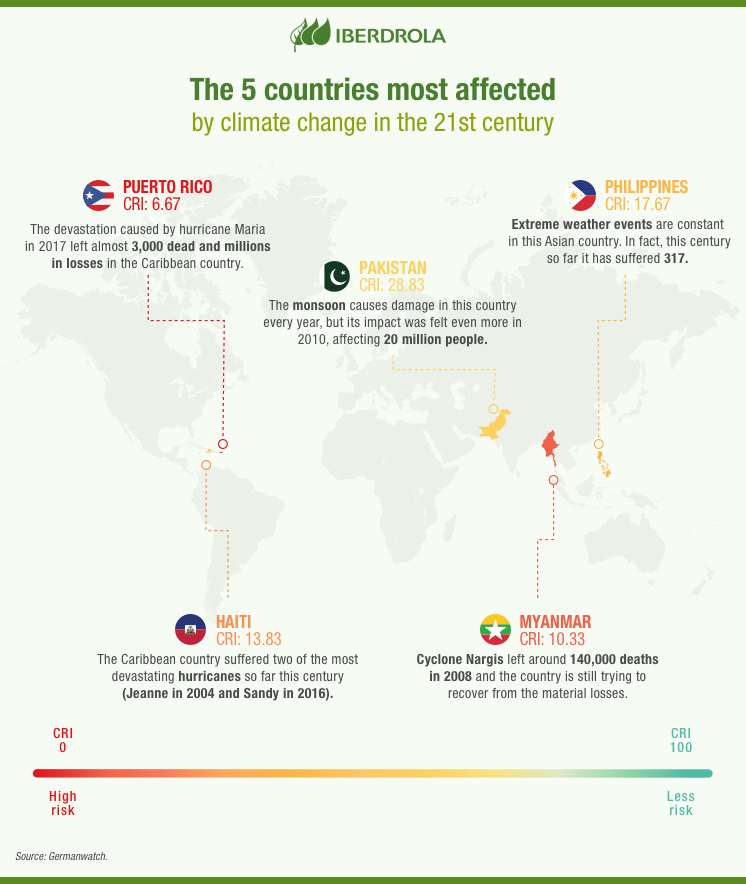
Canada is so very aware and concerned that with the impact that human driven climate change is having on our globe, and Pakistan of course is one of the top five countries impacted by climate change. And so I got an opportunity to see and to engage with northern people, and to get outside and play games with them, but also have a conversation about the fact that the northern regions of Pakistan, like the northern regions in Canada are warming at two times of the rest of the world, and that requires adaptation, it requires a degree of resilience that is always so present in communities, in environmentally fragile areas, but it also requires the rest of us to do what we can, to try and address it, to assist these communities, but also to try and work together to curtail the impact of global warming to the best we can. Which also makes me think about the emissions that are going to be created by large-scale military movements in Eastern Europe, but we’ll leave that one aside for the moment.
We also, and I know this is something very close to Samir’s heart, and also the rest of us that are engaged in business and investment ties between Canada and Pakistan, but the last couple of years have been very challenging globally for the global economy as well as of course for health. We’ve seen sort of stagnant growth in trade and investment relations, which is directly related to curtailing international travel, to the disruption in global supply chains, but I am hopeful and frankly quite optimistic that this will improve in the year to come and beyond. Canada and Pakistan have a very traditional trading relationship, we have about over a billion dollars in two-way trade. Primarily in commodities, agriculture, softwood lumber and logs, in leather goods going in the Canadian direction, scrap metal coming from Canada to Pakistan. But increasingly what we’re seeing is the development of trade in services, and really that’s where the future of our trading relationship lies. Canada and Pakistan’s entrepreneurs and business people working together in Information Communications and Technology, which is one area of tremendous growth. We’ve seen some very successful Canadian companies enter into the Pakistan market to take advantage of English-speaking, educated software engineers and other specialists, that can contribute directly to the global growth of these companies. We also see tremendous potential in renewable energy, and clean technologies, which is an area of value added competitive advantage for Canada and working with Pakistan, and again linking back to the need to address climate change, we have some tremendous investment in wind power, sort of burgeoning investment in solar. This has been challenged here in Pakistan by the difficulties around the independent power producers and the negotiated agreements that governments have made, and frankly living up to the contractual commitments made with these power producers, but I know that our Canadian companies have been working as creatively as they possibly have been able to with authorities in the Pakistan government to try and figure out a way ahead so that Pakistan can take advantage of clean sources of power. We are quite excited by the prospect of developments in the extractive sector, and declared willingness on the part of the government of Pakistan to look at addressing some of the historical challenges in the extractive sector, Reko Diq mine in particular. It looks like there is possibility that could be moving ahead, which for Canada because we are a world leader in the extractive sector both in mining also exploration in mining services sector the resolution of this particular investment will open the doors to a lot more interest on the part of companies from Canada, and global companies that are interested in engaging in this sector.
I always find that I enjoy the question and answers a lot more than, frankly listening to my own voice in my head, so I will stop there, and I’m happy to answer questions and have an interactive dialogue. But just to say that we really do value our relationship with Pakistan, the Pakistani people, and the potential for this relationship in a country that plays such a pivotal role in so many different areas, and particularly in the South Asian region. So thank you very much.
Mr. Kalim Farooqui: Thank you madam High Commissioner. While you were talking, I was reminiscing the days when I was visiting Canada in the early stages at 1972, which was the time I traveled across Canada, and as a matter of fact I had the privilege of attending the 1976 Olympics. My own son, he preferred to go to York University, while I was insisting I’ve been educated in the States, why don’t you go to the university that I’ve been to, but he preferred Canada. Nice to hear you madam, a good coverage of what the relations between Pakistan and Canada exist. There’s a lot that can be done, there is a large diaspora as you said. I will now leave it to our members to ask you questions, there’ll be many to be asked, but the way we go about doing it is, we prefer the members asking the questions and if we have the time, then we’ll let the others also ask. To the people asking the question, I would request you to kindly limit your question to the question itself. Thank you!
Commodore (R) Sadeed Malik: There’s a question from the Chairman of the Sindh Board of Technical Education, Dr. Masroor. I will read out his question.
Question: We could provide support to Afghanistan in developing and strengthening of Technical Vocational education and Training (TVT), and this can be coordinated between Pakistan, Canada and Afghanistan.
H.E. Wendy Gilmour: I’m happy to respond individually or take groups of questions as you see fit. Certainly I think, we see potential in the cooperation with Pakistan, in support of the people of Afghanistan, there’s no question about it. Humanitarian support is moving right at the moment, there is a tremendous need, I mean extraordinary need in education and health in particular. Canada is constrained at the moment from engaging with the interim administration, because the Taliban are still a listed terrorist entity under Canadian law, and so our support must go directly to the Afghan people and not through administrative entities. I am hopeful that, should the Taliban demonstrate that they are interested in working with the international community in addressing some of the more egregious members that they have, that were engaged in the conflict in ways that there were attacks on civilians and other terrorist-related acts then perhaps we can find a way forward. But for the moment we are very constrained in operating in an official capacity in Afghanistan.
Question: Her Excellency thank you very much for being with us on this forum. I have one observation and one question. Observation is that we have noticed, because we are in communication with a lot of people here in Pakistan, that the Canadian Embassy is doing a little discrimination in giving student visas for Canada, as compared to India. This is the observation I would like to have your comments on that. And second, the question is that when do you think that you are going to lift the negative travel advisory to Pakistan, because now you see that Pakistan is a very safe place and you know all people are coming from the rest of the world. So these are my two observational questions. Thank you!
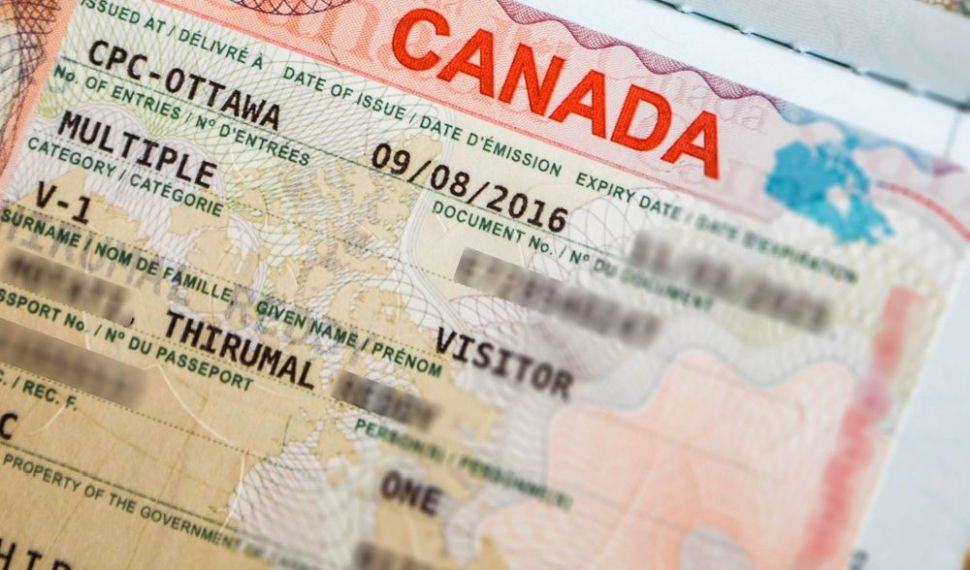
H.E. Wendy Gilmour: Well thank you very much for the questions. I’m actually very glad to address what seems to be a persistent, but we firmly believe, an inaccurate understanding that there is discriminatory treatment of Pakistanis in the visa process, that is not the case. Every application is considered on its own merit, based on the information that is received in the applicant’s file, I would maybe just add a few personal observations on my side. Since over the course of my three years here, I have dealt and heard from people who are concerned with visas on a daily basis. First and foremost, I think it’s important to understand that the number of visas that are applied for from Pakistan is extraordinary. In a pre-COVID environment, I believe it was something in the range of about 3000 a week, those are being dealt with by our colleagues in the Immigration Refugee and Citizenship Department IRCC Canada, uniquely it’s a mandate that is held by IRCC, and they are the only ones that can take decisions. They advise me that there is a significant incidence in the visa applications of incorrect information, ranging from people who have made mistakes through to absolute and outright fraud. This creates challenges in processing because when you have that type of volume of applications, it takes some time to go through them all, so there are certain delays.
With respect to students, the Canadian government wants more students from Pakistan to go to Canada, there is no question, it is an objective, it’s one of my performance indicators for the delivery of the mandate of my High Commission, and we are constantly working to engage with students who are qualified to go to Canada, and encourage them. Like sir, our former speaker, your son going to York University, it’s a great school. The challenge that we have is that, again there is a high incidence of incomplete and incorrect information. I won’t make a value on the type of information that goes into applications, for that reason Canada established a program which is available to a number of countries around the world. Pakistan is now one called the Student Direct Stream and in the Student Direct Stream, there is an expedited processing for those students that are accepted to a qualified university, and the list of universities is on the website, that have the means to show financial support while they’re in Canada, which requires the establishment of a guaranteed investment certificate in a Canadian bank that can only be drawn by the student who will be studying, and then there’s a language requirement and so forth. We are strongly encouraging students going to Canada to apply through the SDS stream, the Student Direct Stream, even though the last two years of COVID have been distorting our statistics, because of course it’s been very difficult to travel, and many students, many foreign students were not going to overseas, or students going overseas to become foreign students. What we’ve seen in the SDS applications is that the acceptance rate for SDS is equivalent to that of the other SDS countries like India, Iran, Vietnam, Philippines, I think I’ve forgotten one. In any event the SDS stream is the way to go, so if any of you know of students that wish to go to Canada are applying, we’re trying to get the word out, apply through the SDS stream, that’s the way to be able to ensure that your application will be considered, and ideally if all the conditions are met, then approved.
On the second question; there was an unfortunate flurry of media attention to the Canadian travel advisory about a month ago, which showed that it had been updated and perhaps things had changed, when in fact the only thing that was updated on it was a global travel advisory related to COVID, which was the same for every country around the world. Canada’s travel advisories are evidence-based, we put them out based on a series of objective criteria that relate to incidents of violence, criminality, terrorism risk, health-related factors, I mean it’s really a multi-faceted advisory. Pakistan has an overall advisory of exercise caution, which is akin to the overall advisory for the vast majority of countries in the world, including countries in Europe, it’s a good thing. It means that, frankly from many in the insurance companies, which is the trigger that they look for to indicate that a country is appropriate for travel. Although I’m sure that many of you and I think objectively you would agree to me, what we have done with the Pakistan travel advice is in order to achieve this level of exercise, caution is the overall advisory, is that we have been very precise with respect to different parts of the country we do not believe it is appropriate to travel. So the overall advisory for Pakistan is this exercise caution which, Canada has a four-tier system, basically Canada being like the number one, the second is exercise caution, the third one is essential travel only, and the fourth one is do not travel. So during my tenure here we have moved Pakistan from essential travel only to the travel as you will but exercise caution category. But Balochistan, the newly merged districts, there’s a couple of other areas as well in Khyber-Pakhtunkhwa are still in the either essential travel only or do not travel. Again I believe I hope many of you would agree with me, but given some of the recent incidents that we’ve seen in Balochistan in particular, the level of security in the newly emerged districts, this is not a place that we are looking for business travelers, or tourists and others to go to. That said, the northern areas, Punjab, the Khyber Pakhtunkhwa districts on the way to the northern areas, Abbottabad, Mansehra, Naran, and these are all areas that are clear for travel. I have traveled throughout these areas on my own and in my own car and you know I encourage Canadians to do the same. But it is very clear that there are still some quite challenging areas in Pakistan and we have to provide the information that allows Canadians to make informed choices.
Mr. Kalim Farooqui: Thank you very much! Very good explanation to the two points asked by my colleague, but if I may madam High commissioner, add to it, let me tell you there is a preference by the students in Pakistan to go to Canada. I gave you the reference of my son as well. Even though the distance stands in the way, there is a feeling that Canada is better than other countries in the west where they could go and get educated plus the fact that diaspora is creating in a place called Mississauga near Toronto, there is a huge population and everybody has somebody or the other as a relative or a friend there. One of the reasons that the students prefer to go to Canada is the ease of going and being with the families there, plus the fact there is a preference after 9/11, Canada is a better place to go and study. If at all other countries perhaps might be Australia. As far as the travel advisory is concerned, being on the board of many bilateral business forums, the travel advisory by the country depends on the business of that country in Pakistan. I understand the constraints that you all face in leveling your travel advisory, but please understand that Pakistan is much different from what it was three four five eight years ago. So please keep that in mind, there are a lot of people who want to travel to Canada, they want to do business and there are big opportunities that will come in. I will now go for the next person who might want to put up a question to the High Commissioner.
Question: This is about the current hot topic of Ukraine, the confrontation with Ukraine. With the end of the Cold War, and collapse of the USSR, there may not have been any justification for continuation of NATO, however not only NATO continued but also encroached upon the former Warsaw Pact countries. Now there is confrontation in Ukraine, and there is a possibility that the western-installed government in Ukraine may be requesting for membership of NATO. That would not be acceptable to Russia because there is a possibility that after acceptance of NATO request by Ukraine, missiles could be installed right at the border of Russia. All that Russia is saying is that give us a guarantee that NATO will not get Ukraine as a member, at least for maybe for another 50 years or 30 years. So what prevents the western powers to guarantee to the Russian government to not give membership to Ukraine. As far as the sovereignty of Ukraine is concerned, may I politely and humbly ask, where was the sovereignty of Iraq which was invaded by the USA without provocation. Thank you very much, Excellency!
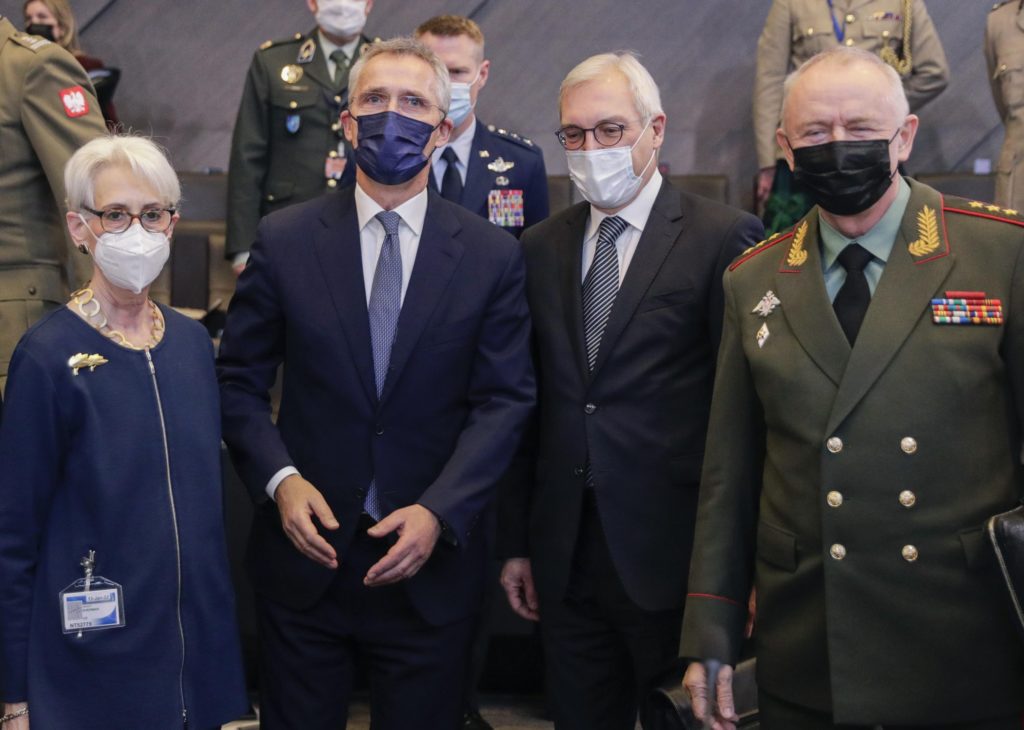
H.E. Wendy Gilmour: Well thank you very much for the statement, and I believe question as well. I have a different perspective of course. It is important that we all have an opportunity to speak about our perspectives, and frankly the more dialogue there is the less opportunity there would be for outright conflict.
NATO as an institution is governed by and established through the Washington Treaty. Which has as one of its, I think it’s actually Article 2, the principle of like-minded nations who adhere to democratic principles. NATO is an organization, and an alliance, of like-minded countries, who have joined together for mutual defense. It is not directed at any particular bloc, it is not an offensive or expeditionary organization, it is designed to protect its member states. So in the end, in the aftermath of the end of the Cold War and the breakup of the Soviet Union, there were a number of nations that demonstrated their commitment to these principles, and that sought to join NATO and NATO enlarged to include them. NATO had an ongoing and active dialogue with Russia, and would still should Russia be interested in participating. We have partnership agreements with many countries. We are collectively as the alliance, the alliance has an ongoing and active partnership with Pakistan including in military education. Russia’s choice to pursue, I need to choose my language carefully because of course it is a very sensitive time, but Russia’s choice to invade its neighbor, a sovereign country Ukraine is demonstrative frankly of the importance of like-minded countries getting together to exercise their collective defense.
Ukraine was not on a membership track for NATO, it was an active partnership. There are many different countries which have these partnerships with NATO. For Russia to feel threatened speaks more about Russia’s perception of its own actions, than frankly NATO’s, that is our view. There are many different views in this respect, but I believe it is very important that we all underline the importance under international law and the behaviors of states, to be good international citizens, to respect territorial integrity and sovereignty, and to engage in dialogue where there are disputes. With respect to Iraq, and I would just make note of Canada can only be responsible for its own actions and we chose deliberately with the government of Prime Minister Chrétien at the time, not to participate in the invasion of Iraq in 2003, because we did not believe that the international law supported it at that moment. The world is a very challenging and dangerous place, every country has to make its own decisions with respect to engagement and protect its own interests, but I would hope that Pakistan which has a stated approach of adherence to an importance of a rules-based multilateral order, would continue to work within it as does Canada. These are two, I mean certainly areas that Canada and Pakistan feel very alike on, and strongly about.
Mr. Kalim Farooqui: Thank you madam for your answer. At the moment we are a little worried for our Prime Minister who has gone to Russia, you know first ever to visit after decades. He only arrived last night, and there’s a meeting scheduled for today, and we only hope that something good turns out. Like you said, these are challenging times, the regional politics are changing, the regional dimension is changing, and we only hope for the best, living in a difficult world.
Commodore (R) Sadeed Malik: Before we request the Chairman for his concluding remarks, may I very briefly introduce him to the people present, and of course her Excellency. We had sent the brief to her Excellency, but I would tell inform you that we are very lucky to have our Chairman, whose articles are printed in many newspapers every week. Syndicated weekly columnist in six countries in 15 newspapers and magazines in Pakistan, include English regulars, Daily Times, Balochistan Express, Messenger, The Original Times, The Frontier Star and South Asia Monitor in Malaysia, and then frequently, The Nation, Business Recorder, Dawn, The News, Pakistan Observer, Pakistan Today and Express Tribune and Urdu dailies regularly in Express Ausaf, Taqat, Khabrain, Intekhab, Ittehad, Daily Jang and Nawai Waqt, etc. He is the author of two books, Escape from Oblivion, and then Blood over Different Shades of Green. He regularly appears on television on different talk shows. In addition to all this, he is the Chairman of Pathfinder Group, which has about 12,000 employees in 50 cities and towns in Pakistan. Pathfinder group includes Security Services Division, Security Management Services, Wackenhut Pakistan (Pvt.) Limited, SMS Electronic Safety Services and Research & Collection Services. He is also the Chief Editor of Defense Weekly, and Financial Services and Technological Division. Virtual Remittance Gateway, he owns this facility and Pathfinder Private Limited iPath, etc. He primarily is an army officer who graduated from the Pakistan Military Academy and I recall 55 years back, when I joined as a cadet, he was a senior under officer over there. He is the founding member of World Economic Forum in Switzerland, former Director of Bank Alfalah where he remained for 16 years. He has been the Chairman of K-Electric, Director East West Institute USA, Director of the year 2016. Foundation member WEF, Formerly Global Agenda Council GAC for Counter-terrorism, now Anti-corruption and Transparency. He hosts Pakistan Breakfast every year at the World Economic Forum, and many of us have enjoyed the breakfast in Switzerland. He is a member of All Pakistan Security Agencies Association (APSAA). He is the senior member of Pakistan Editor’s Council, he is a regular speaker at the National Defense University of Pakistan, PAF War College and Naval War College Lahore. He is Vice Chairman of Board of Management Quaid-e-Azam House Museum. There’s a list further which we had sent to you yesterday, so I need not continue further. May I now request our Chairman for his concluding remarks.
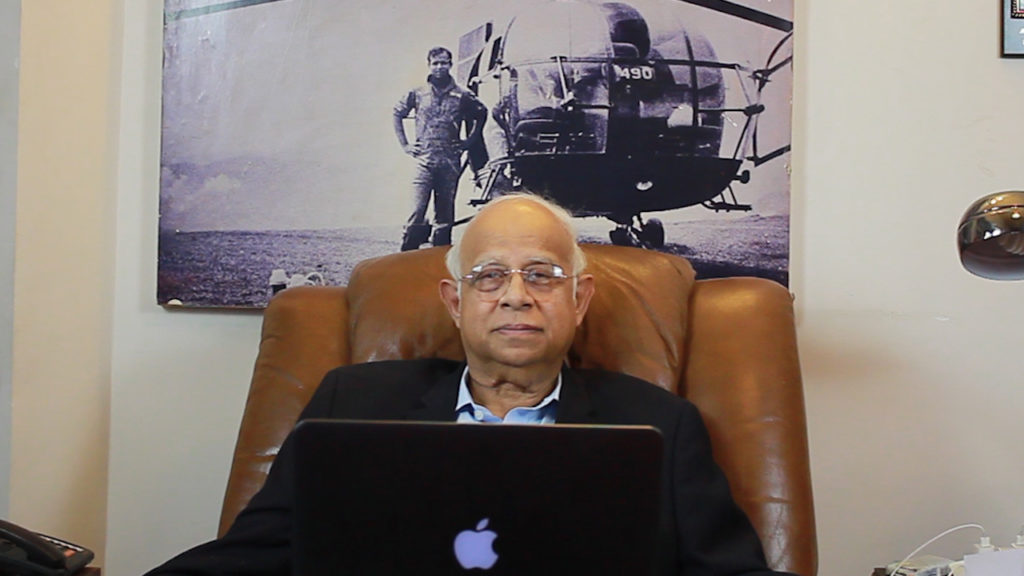
KCFR Chairman Mr. Ikram Sehgal: Thank you Commodore Sadeed. I think the most important part of it is, that we were colleagues together 57 years ago, as cadets, together in PMA Kakul.
Excellency, first of all let me thank you for having given us a good discourse, a good presentation on things as they are, particularly between Pakistan and Canada, and Canadian perspective about Pakistan and what is happening in the world today. There are some things we cannot change, we cannot change our neighbors, we live in a very dangerous neighborhood and we have problems. We have a disputed problem about Jammu and Kashmir, we’ve had till very recently a problem because of the war in Afghanistan, which is continuing in a different fashion now, obviously. And because of the Shia-Sunni divide, and the problems between the Arab countries and Iran, we are also walking a tightrope there, so all in all we have been walking a tightrope all along, whether it’s a regional tightrope or whether it’s an international tightrope. We’ve been doing that and what you see is a continuation of that, because while you know we were an essential part of the shield against communism, and if you remember Pakistan, Iran and Turkey became part of the Baghdad pact, ultimately became CENTO and of course when that broke up, stayed as part of the Regional Cooperation Development, which ultimately became the Economic Cooperation Organization. So Excellency, if you look at when Commodore Sadeed Malik has talked about the World Economic Forum, and where we are and actually the World Economic Forum sets trends, which actually happen in the world maybe two three years after they are sent, one of the things was that they included us as part of South Asia, we were all part of South Asia till you know everybody ganged up against us for a few years, now the things are changing, but because of that we felt part of South Asia and not a part of South Asia, we are a part of the Middle East and not a part of the Middle East right. So ultimately because of the North-South Corridor, people talk about the China Pakistan Economic Corridor, they forget the North South Corridor which comes through the Central Asian states to Pakistan and which ends in Gwadar. The North South Corridor and the East West Corridor, which is the old RCD highway, actually as we speak two trains have gone from Pakistan right up to Istanbul you know and it’s actually happening. So we are part of four corridors and MENA Middle East North Africa, China Pakistan Economic Corridor, North South Corridor, and we are part of the RCD. Now the point is we need to have a balanced relationship with everybody, we just cannot afford sides anymore, we cannot afford the same mistakes, we could have been more balanced in the Afghan war, but I think we made a mistake and because of that we are suffering and will continue to suffer in the future, because of this War on Terrorism. Whatever the Taliban hierarchy may think of Pakistan, and may have a good side of Pakistan the people down below are not going to listen, they’re going to come across because some of them really went from here to join the fighting there, so they are not going to be under control of the Taliban hierarchy. So I think people need to understand our situation, you did speak about areas which are non-accessible, and Excellency those are non-accessible because of the problems that occurred there. Swat was taken over by the Tehreek-e-Taliban. FATA was taken over by the Tehreek-e-Taliban. The Pakistan army fought a magnificent war to get rid of the occupying Taliban from there and got them out, restored peace in that area, and actually integrated the FATA into Pakistan. Obviously people are sensitive about going there, not for other reasons but for security reasons. But may I remind you Excellency, you put us to these standards, but you don’t hold India to those standards. Can you go and visit Jammu and Kashmir, can you go and visit Assam, can you go and visit the seven sisters Nagaland, Mizoram, Manipur, etc.? You cannot, because all of permissions, etc. And that is starting right from the last 70 years, it’s not from yesterday or day before yesterday. So I think people have to see things as they are, and really be practical about the things, I think we in the end, value our relationship with Canada.
You mentioned about Reqo Dik, with the second largest copper and gold reserve in the world, you know when once the Reqo Dik problem is solved obviously we would love to have mining interest from Canada coming to Pakistan. Because that is our strength, that is the raw material we have, second largest copper and gold reserves in the world. Obviously we will require Canadian investment and Canadian technology. We are very lucky, of course Mr. Kalim Farooqui has talked about Canada and his son going to Canada, you know the previous destination of choice was UK, then it became USA and then after 2002, the destination of choice became Canada. There’s a huge Pakistani diaspora in Canada, and we do look forward to a connection. We look forward to more interchanges, we look forward to more interaction with your think tanks, we need to talk to each other, and we need to dispel the doubts with each other. So Excellency please accept my heartiest gratitude for coming to us and speaking to us, and we look forward to further interaction with you, we look forward to your actual visit to Karachi, we would like to host you for a more personal interaction So I thank you, and I thank all the participants for being with us today.
Thank you very much!
Commodore (R) Sadeed Malik:: Thank you very much, Sir. I would like to thank her Excellency once again, and all the distinguished participants, and before I can take the permission to conclude.
Mr. Kalim Farooqui: If you allow me just one comment to the High Commissioner. Madam you have a very active and a well-known honorary Consul General in Karachi, Mr. Byram Avari. I tried to speak to him yesterday, but he was in Islamabad, otherwise he would have joined this webinar. He is under pressure for visas which was actually mentioned by one of my colleagues here, but he’s smart and he leaves everything to the High Commission in Islamabad. So please do take a look when the applications come to you, because like what our Chairman said, there’s a big diaspora in Canada. And for the businessman, if it’s not for the locals there at least for the immigrants from Pakistan who have gone there, they look forward to products coming in from Pakistan. So there is a big opportunity for business as well, and getting the visa is one hurdle that needs to be overcome, so please take a look at it. Byram has been a very good friend, he is a family friend of ours, he knows everybody in Karachi, and you have got the right choice for the Honorary Consul General. But he doesn’t take a decision himself and sends it to the Islamabad High Commission. That is my comment, Thank you!
Question: Something for our guest, you know Prime Minister Trudeau visited India and he made a comment about Kashmir and he was then treated as an outcast there. So it isn’t that Canada hasn’t spoken on about it, I just wanted to make a point in on behalf of our guest here.
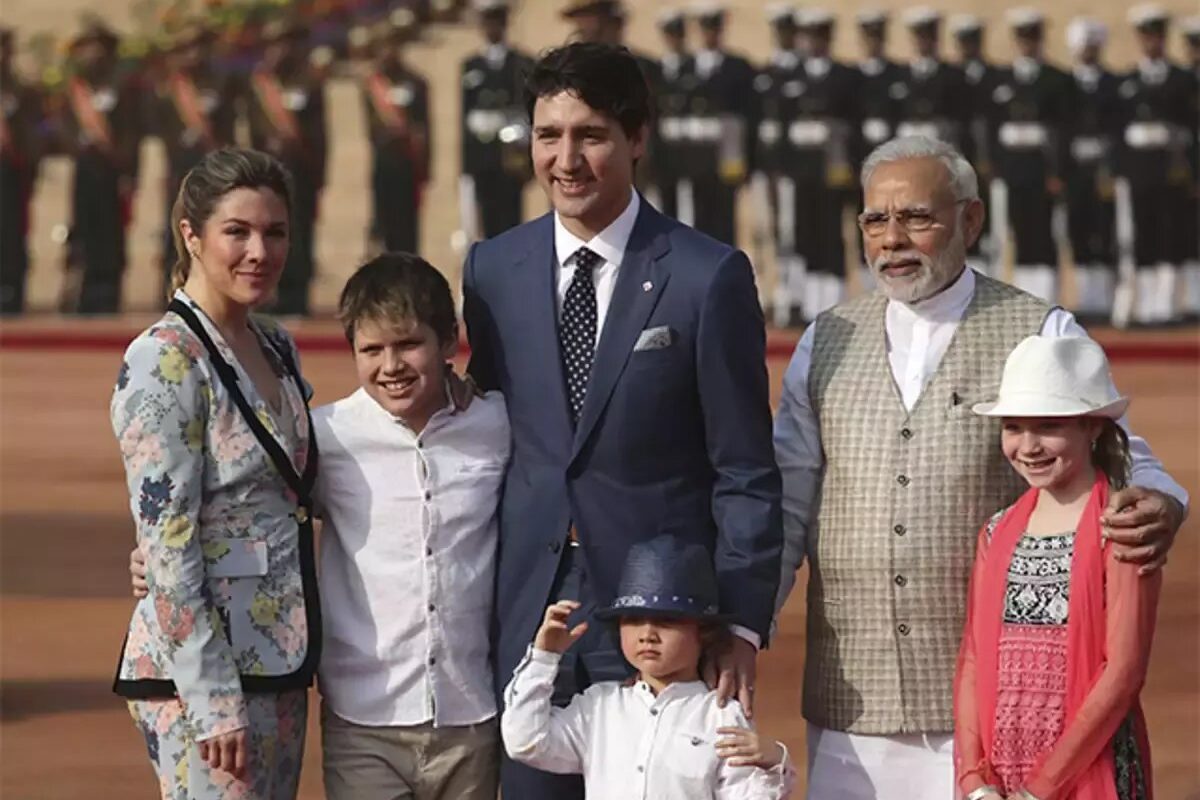
Wendy Gilmour: If I may respond very quickly, and I know we’re past a little bit of time. But thank you all for the opportunity to be here. Maybe just one or two points for clarification.
The one is I think if you look at Canada’s travel advice for India, it is at the moment at the same level as Canada’s travel advice for Pakistan, and they are very similar. In both cases they are at the exercise caution, a reasonable advice, a judgment to make and as I said as much of the world is exactly there with specific areas that you identified are also called out in India, just as specific areas are called out in Pakistan. So it is we do look at these things objectively and based on the information available to us, but it’s something which is constantly under review.
And if I may just say on visas, I just wanted to dispel, if anything is left at the impression that I might have the ability to make decisions on visas, because you know unfortunately in some respects maybe fortunately in others, for me I have no role in the visa process. It is something under Canadian law which is held by Immigration Refugee and Citizenship Canada. The decisions are taken by the responsible visa officers, wherever they are in the world and are looking at applications. Applications are assessed online in the order in which they are received on a global basis, which is one of the ways that Canada is trying to keep up. But we are very aware of the challenges and we’re looking at some strategic communications around, trying frankly to give people the information they need in order to apply in such a way that it allows the visa officer to consider their application positively. It’s really important to get all the information into the application, because literally you can’t guarantee that the person reviewing the application has any specific knowledge about Pakistan or Iran, Philippines, India wherever else the applications happen to be coming from, these are officers who are experts in the application process, so that’s really important. But I agree completely with all of you that I would like to see the exchanges, the people-to-people family reunification, business engagements, students in particular increase, and that is a goal of the High Commission and we are trying to make that happen. So thank you so much for allowing me the ability to speak to you today.
Commodore (R) Sadeed Malik: Thank you very much Excellency, especially for giving us time over and above time from the scheduled period.
Thank you very much!




